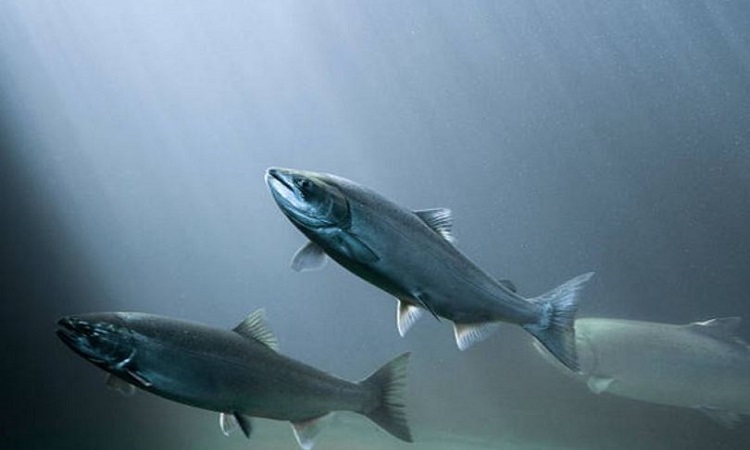Study: Climate change has unpredictable effect on timing of juvenile salmon migration
In accordance with new research, climate change has resulted in early spring blooms for wildflowers and ocean plankton, but the effects on salmon migration are more convoluted. Read further on Dynamite News:

Washington: In accordance with new research, climate change has resulted in early spring blooms for wildflowers and ocean plankton, but the effects on salmon migration are more convoluted. In a new study published in the journal Nature, Ecology & Evolution, Simon Fraser University (SFU) researcher Sam Wilson gathered a group of varied partners from throughout North America to assemble the world's largest dataset on juvenile salmon migration timing. The collection comprises 66 populations from Oregon through British Columbia to Alaska. Each dataset was at least 20 years lengthy, with the oldest reaching back to 1951. Only wild salmon, not hatchery salmon, were included.
"Field scientists from many different organisations work really hard to collect data on the migration of smolts, day after day, year after year," says Sam Wilson, a postdoctoral researcher in SFU's Salmon Watersheds Lab and the review's lead author. Bringing all of this data together emphasises the significance of long-term monitoring." Many salmon species have migration timing that has substantially changed over the last 20 or more years. Pink and chum salmon had the fastest rates of change (migrating seven days per decade earlier), while other species' migration timing has not been changing, on average.
However, a deeper dive into the data showed that there was greater variation between populations within species than between different salmon species. These population-specific changes were unpredictable with currently available climate and geographic data. "We were really surprised. Yes, there were really strong signals of climate change as many salmon tended to be migrating earlier, but it was incredibly variable and unpredictable." Dr. Wilson says. In response to the same level of warming, the study showed that some populations had earlier migration timing, while others had no change, or even migrated later in the year.
Also Read |
Climate change, health risks escalate amid surge in PoGB deforestation
When the timing of juvenile salmon migrations and food availability matches, this creates ideal conditions for surviving those first few months in the ocean and can directly influence how many adults return.
The researchers are concerned that salmon do not appear to be responding to changes in the coastal ocean, which could make mismatches more common under future climate change.
Dr. Matthew Sloat, the co-author of the review and director of science at the Wild Salmon Centre, notes that one important accomplishment of the study was to bring scientists and datasets together. "This study brought together more than 50 scientists from government and community organizations, with everyone contributing their expertise and data to better understand this important, but often overlooked life stage."
Also Read |
HM Rajnath Singh: Hope Trump will rethink decision on Paris deal
It also shows the importance of long-term datasets, he says. "Long term monitoring projects are expensive and logistically challenging to run, and yet are increasingly important to better our understanding of how climate change may be effecting salmon."
As climate change continues to alter ecosystems, being able to predict what species or populations might be the most vulnerable can help to prioritise conservation. Study co-author Jonathan Moore notes that when those changes are difficult to predict, a precautionary management approach is important for the long-term conservation of ecologically, culturally, and economically important species, such as Pacific salmon.
"Climate change is here and it is changing salmon and their ecosystems," says Moore, a professor with the Salmon Watersheds Lab in the Faculty of Science at SFU. "Many of these changes are going to be unpredictable, which calls for the protection of salmon biodiversity and their habitats." (ANI)
 Dynamite News
Dynamite News 